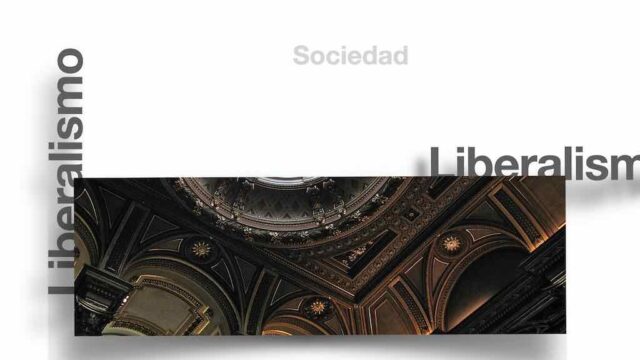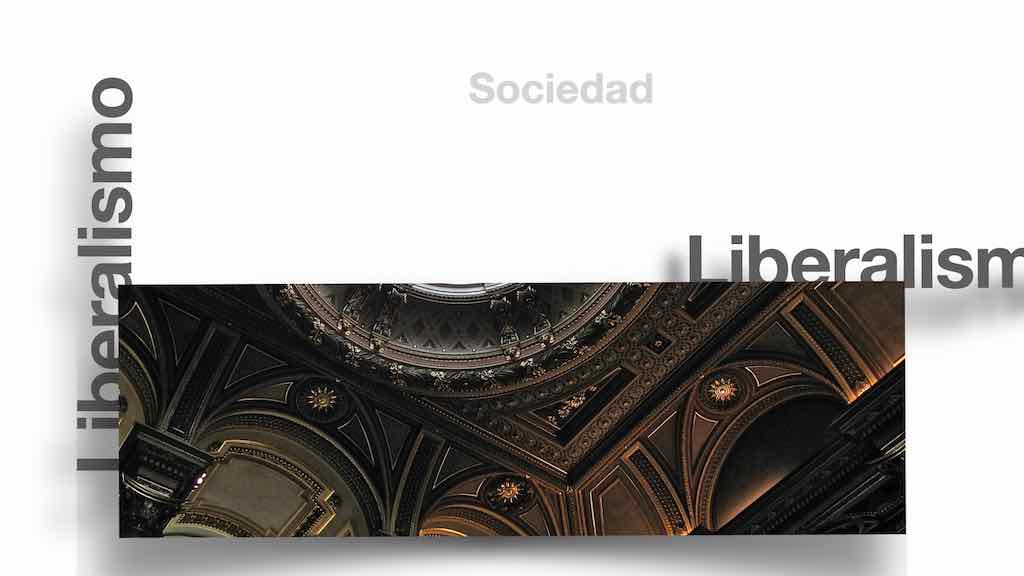Why do some nations thrive while others languish in mediocrity? This column proposes a compelling answer to this perennial question: the concept of Stalled Societies. Moving beyond superficial explanations, this framework posits that the key to a nation’s prosperity lies not in its external circumstances, but in its internal capacity to harness its most valuable asset: the talent of its citizens.
Tabla de contenidos
9 minutos
Introduction
My intention here is to propose a concept—that of Stalled Societies—to account for the frankly dismal performance of certain nations. A stalled economy, or indeed a stalled society, is one that ticks all three of these rather unfortunate boxes:
- It has endured a poor or mediocre performance for a period of at least five years.
- Its potential for significantly greater development was, and remains, patently obvious.
- This unfortunate state of affairs is the result of causes for which it is entirely and unequivocally responsible.
📌 These three conditions, it is argued, define a stalled society: one that could have prospered but has failed to do so due to its own internal failings. These nations, as a rule, have been held back by internal events and decisions, or a lack thereof.
While this concept is perhaps most easily spotted in poorer nations, it is by no means limited to them; it also encompasses intermediate and even developed countries that have become trapped in a sustained state of mediocre, or worse, performance. It is, in essence, a problem of chronic underdevelopment.

Causes of a Stalled Society
📌 It is proposed that the causes of this state of stunted prosperity share common characteristics. The causes of stagnation or regression are essentially internal to the society. Furthermore, they are related, either directly or indirectly, to the underutilisation of a nation’s internal human capital.
In other words, a nation’s poor or mediocre performance is due to the low utilisation of its citizens’ talent. The concept of stalled societies is thus underpinned by the existence of a positive causal association between the underutilisation of human capital and the prosperity of that society.
A greater utilisation of citizen talent leads to greater prosperity, and vice versa. Consequently, an examination of the causes of this underutilisation may offer promising indications of measures that could release the brake on progress. This idea is closely related to E. Phelps’s concept of Economic Fertility.
The Central Foundation of Development: Human Talent
It is maintained that the central cause of prosperity is human talent, and that it is distributed homogeneously among all societies. While it is self-evident that climates and natural resources are not homogeneously distributed, it is here contended that the potential talent of people is.
📌 Therefore, it is concluded that no country has an inevitable, external reason that justifies a low level of prosperity, wellbeing, or development, or whatever one chooses to call it.
Another way of explaining this idea is to use the term human capital as an approximate equivalent for people’s talent. Capital in general includes capital goods (tools, machinery, buildings, infrastructure, technological know-how), research and development, human capital, inventories of semi-finished goods and raw materials, and investment capital (see Skousen). All of these elements are positively associated with prosperity, and it is here argued that the human factor is the most important of them all.
Stalled Societies: The Explanation
When a society fails to prosper or performs at a mediocre level, the most significant explanation for this fact is the rate of utilisation of the human capital it possesses. A stalled society is one in which human capital is underutilised. A society with a satisfactory performance is one in which that capital is utilised at a higher rate.
Therefore…
📌 Prosperity is primarily a consequence of internal national circumstances that produce different rates of utilisation of citizen talent. Attributing national prosperity to causes external to the nation is a less powerful explanation, as is attributing it to the presence or absence of natural resources.
It is logical, therefore, that by examining the reasons why citizen talent is underutilised, one can find general principles that lead to concrete measures to increase that utilisation. What, in essence, prevents the greater use of people’s potential talent within a country? Finding an analytical and reasonable answer will be a great step towards discovering ways to increase prosperity and wellbeing.
The following is a brief exploration of the causes that stifle the use of people’s talent within a society.
Causes that Impede Progress and Stifle Prosperity
This is an initial attempt at an analytical explanation that divides these causes into three categories: economic, political, and cultural.
1. Stalled Societies: Economic Reasons
Within the economic sphere, the following are the causes of the inadequate utilisation of citizen talent.
- Legal Excess and Complexity: An excessive number of laws, regulations, permits, and mandatory procedures for the opening and operation of companies and businesses. This is primarily a factor of time and cost, which increases the price of people’s labour and the goods they produce, harming both sellers and buyers. Significant simplification would lower costs and allow more time and talent to be dedicated to work rather than to complying with unnecessary obligations. See Saavedra Fajardo.
- Heavy Fiscal Burden: High taxes that lead to a rise in the prices of goods and discourage the use of talent. They are a waste of resources and time. See Smith.
- Centralised Economic Planning: The centralisation of economic planning means the concentration of decisions in the government, which removes them from citizens. This necessarily means that the economy is more affected by the decisions of bureaucrats than by those of citizens, which creates a problem of both numbers and knowledge. There are far more citizens who know the details of their businesses, yet their talent is not applied. See Ormerod.
- Underdeveloped Financial Markets: This makes it difficult for citizens’ projects to obtain financing. Talent, therefore, has fewer resources with which to materialise. See Brenner.
2. Stalled Societies: Political Reasons
The following are causes of the inadequate utilisation of citizen talent.
- Uncertainty: The mistrust produced by an unpredictable and unstable authority whose provisions and mandates create uncertainty about future benefits. This prevents the use of talent, especially in long-term projects. See Fukuyama.
- Corruption: Corruption and cleptocracy are proportional to the size of the government and the centralisation of power. They increase operating costs and waste talent that is instead occupied with avoiding and confronting them, decreasing incentives and increasing costs. See Mora.
- Concentration of Power: This necessarily causes abuses and therefore mistrust, which in turn diminishes the motivation to use talent, especially in large and long-term projects. See Nock and Humboldt.
- Weak Rule of Law: This refers to the inconsistent application of the law, with unreasonable courts and ineffective police who, collectively, fail to punish talent used in illegal activities and to provide security for talent used in formal and legal enterprises. See Girondella.
- Excessive Bureaucracy: This implies high maintenance costs and wasted taxes. Time and talent are used to attend to bureaucratic requests. See Friedman.
- Corporatism: This entails concessions and privileges for highly organised groups to the detriment of the rest of the people. The talent and time of individuals are used to please superiors on whom their future depends. See Girondella and «Crony Socialism.»
- Monetary Instability: This is the product of poor management of public finances, which creates economic crises that waste talent. See Chafuén.
- The Struggle for Power: A situation that creates uncertainty and thus removes incentives for the use of personal talent. It is a failure to understand democratic systems. See Novak.
- Problems with Property Registration: This prevents the utilisation of one’s own material resources that talent needs. See de Soto.
- A Belief in the Absolute Power of the Law: The assumption that everything can be achieved by regulating behaviours to force virtue, and the compliance with which hinders the use of talent. See Bastiat.
3. Stalled Societies: Intellectual and Cultural Climate
Within the cultural sphere, the following are the causes of the inadequate utilisation of citizen talent.
- A Failing Public Education System: Poor and low-quality education that prevents the acquisition of analytical and mathematical skills. It is an attack on long-term human capital and its potential. See Richman.
- The Exaltation of Poverty: The consideration of poverty as a privileged group creates suspicion of wealth, which in turn becomes a brake on the use of talent.
- Collectivist Ideologies: Mentalities that glorify social sectors and classes while underestimating the personal source of talent. See Sowell.
- Fatalistic Beliefs: Popular beliefs that understand life as unchangeable and internally curb possible individual effort. See Harrison.
- Moral Relativism: Under its influence, virtues such as hard work, saving, effort, honesty, collaboration, and prudence cease to be valued, while dishonest actions that produce immediate practical results are deemed valid. See Adler, Weigel and Tocqueville.
- Biased Intellectuals: They create an unstable intellectual environment by producing idealised future schemes that are impossible to predict and which, through that uncertainty, reduce the talent that can be used. See Hayek and Scruton.
- Discarded Lessons and Experience: The insistence on applying policies and measures that have consistently failed. See Wheelan and Kennedy.
- An Exaggerated Emphasis on Rights: The artificial creation of all kinds of rights without the backing of responsibilities, which channels talent into the pursuit of government favours. See Hazlitt.
Conclusion
A stalled society is defined as a nation with a mediocre or poor economic performance, which could have had greater development and whose situation is due to internal causes.
The main factor for development and prosperity is human capital, that is, the talent of its citizens. If potential talent is distributed homogeneously around the world, the difference in prosperity between countries lies in how well each one utilises that talent.
The text divides the causes of this underutilisation of talent into three main categories:
- Economic Reasons: These include an excess of regulations and bureaucracy, a heavy tax burden, the centralisation of economic planning, and underdeveloped financial markets.
- Political Reasons: These refer to institutional uncertainty, corruption, the concentration of power, a weak rule of law, and monetary instability.
- Intellectual and Cultural Climate: This addresses poor education, the glorification of poverty that generates rejection of wealth, collectivist ideologies, fatalism, moral relativism, and the insistence on failed policies.
In conclusion, prosperity does not depend on natural resources or external factors, but on a society’s capacity to liberate and empower the talent of its individuals.
Others also read…
Actualización última:





